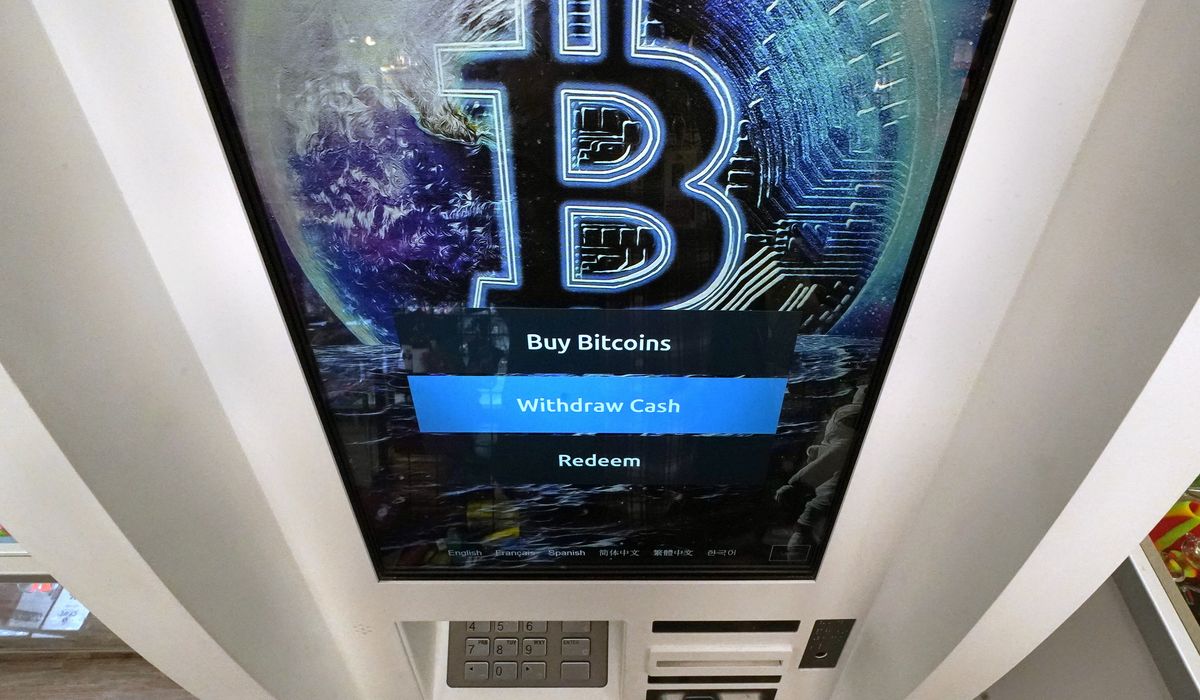Little Laos makes big play in cryptocurrency raising environmental fears

BANGKOK, Thailand | Stepping in after China‘s recent crackdown, the impoverished Southeast Asian nation of Laos is opening the doors to Bitcoin mining and trading, sensing a cryptocurrency opening fueled by abundant hydroelectric power from the Mekong River and shrugging off U.S. warnings of disastrous environmental problems.
The surprise announcement earlier this month by the office of Laotian Prime Minister Phankham Viphavanh allowing the creation and dealing of Bitcoin, Ethereum, and other blockchain-based currencies makes Laos the only Southeast Asian country to officially permit and participate in the web-based currency.
China had allowed Bitcoin miners â€" who need plentiful power supplies to perform the dense mathematical computations that produce\ the currency â€" to feed on its cheap electricity for several years, mostly in the provinces of Inner Mongolia, Xinjiang, Sichuan and Yunnan. But Beijing rocked the cryptocurrency markets by tightening regulations and shutting their systems in May.
And just last week China’s central bank on Friday declared all transactions involving Bitcoin and other virtual currencies illegal, stepping up a campaign to block use of unofficial digital money, the Associated Press reported. The AP account said Chinese officials are increasingly concerned that Bitcoin and other digital currencies disrupt the financial system and have become increasingly popular with money laundering rings.
Worried foreign investors struggled to export expensive, delicate, massive computers out of China while scouring the world for fresh places to set up. In the scramble to capture the Chinese business, Laos is taking on some pretty big rivals.
“China has shot itself in the foot by going after its Bitcoin miners,†Forbes reported. “The U.S. is becoming a big-time miner in its wake.†Mining is now allowed in Texas, South Dakota, Nebraska, North Carolina and other states.
International miners have also moved from China to Canada, Kazakhstan, Uzbekistan, Russia and elsewhere.
Mining or “minting†fresh crypto involves constructing and operating huge, linked computer “rigs†to determine a 64-digit hexadecimal “hash†number based on increasingly complex algorithms â€" essentially guessing trillions of possible random answers. By doing so, miners confirm Bitcoin and transactions are genuine, and add them to the blockchain.
Those decentralized miners then collect a commission in Bitcoin after validating one megabyte of Bitcoin transaction data.
The result, cryptocurrency advocates say, is a new kind of money that moves safely, seamlessly and anonymously over the internet beyond the control and regulations of individual governments and central banks.
Hot weather, cheap power
In the global competition to attract miners, several countries in the Northern Hemisphere boast of year-round icy temperatures to cool giant, heat-generating databases.
That’s not a pitch Laos can make: The weather is usually hot and the country’s jungle-clad mountains do not receive snow. But ultra-cheap Laotian hydroelectricity costs are still proving a potent lure.
As a result of 73 hydroelectric plants already in operation, electricity is Laos‘ main export â€" 30% of the country’s total â€" valued at $6 billion last year.
Laos also offers inexpensive real estate, a low-cost workforce, loose regulatory enforcement and special economic zones with financial sweeteners for outside investors. On the negative side, an opaque bureaucracy, limited transportation routes, corruption and an inefficient legal system could dampen some foreigners’ enthusiasm.
For Vientiane to turn a profit, foreign computer experts would need to arrive in Laos to build, operate, repair, clean, and test crypto databases inside large warehouses linked to hydroelectric stations.
A slew of top Laotian government officials say they are ready to help, including the ministers of finance, energy and mines, planning and investment, technology and communications, and public security.
Local investors for mining and trading include Wap Data Technology Laos, Phongsubthavy Road & Bridge Construction Co., Sisaket Construction Co. Ltd., Boupha Road-Bridge Design Survey Co., Ltd., the Joint Development Bank, and the Phousy Group, according to the government-approved Laotian Times.
The government’s Bank of Laos will issue regulations about cryptocurrency use, even as the country remains on dependent on U.S. aid, Chinese loans, Thai investment, and other foreign sources to fuel its economy.
While El Salvador, another small country making a big play in the market, last month became the first country to embrace cryptocurrencies as official legal tender, It is against the law for citizens of Laos to buy or sell cryptocurrencies.
But a number of Laotian businesses quietly accept cryptocurrencies as payments, and advertise opportunities to invest in digital currencies, the Laotian Times said.
Despite still officially presenting itself as a hammer-and-sickle Communist regime, Laos has welcomed international capitalists from East and West seeking to exploit its natural resources.
Dam drama
While Laos expects crypto miners will harness the Mekong River and its tributaries for fast cash, U.S. concerns focus on the proliferation of hydroelectric dams and its follow-on environmental impacts.
The Mekong begins in Tibet’s glaciers, crosses China, and meanders from Laos‘ northern border south into Cambodia. The river then broadens into southern Vietnam’s Mekong Delta and dumps into the South China Sea near Ho Chi Minh City.
The U.S. has backed efforts by Cambodia and Vietnam to curb Laotian dam construction, and enforce regulations on the seasonal timing and quantity of water retained and released by the dams, so the two downriver nations’ fishery and agricultural sectors do not wither.
Critics portray the dams as among the worst environmental crises Southeast Asia currently faces, amid concern that Beijing joined other investors rushing construction to extract quick profits.
Most Laotian hydroelectric power is sold to the government-owned Electricity Generating Authority of Thailand which lights up Bangkok, Chiang Mai and other cities. Laos needs just a small share of the electricity it generates because of the modest needs of its scattered population of only 7 million people.
Chinese companies built many of the dams while several were built and financed by Thais and others. A total of 140 dams are expected to be constructed in the country eventually.
Sign up for Daily Newsletters
0 Response to "Little Laos makes big play in cryptocurrency raising environmental fears"
Post a Comment